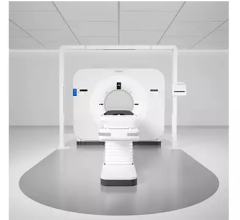
October 22, 2015 — The steroid dexamethasone reduces radiation-induced pain flare in cancer patients with painful bone metastases, according to research presented at the American Society for Radiation Oncology’s (ASTRO’s) 57th annual meeting.
Patients with cancer that has spread (metastasized) to their bones can experience debilitating bone pain. While radiation therapy (RT) is commonly used to treat patients with bone metastases to lessen this pain, it can also temporarily cause pain flare, a worsening of the pain, in some patients. According to the U.S. National Cancer Database, between 2005 and 2011, nearly 25,000 patients with breast, lung or prostate cancer were treated with radiation for bone metastases.
This multi-institutional trial, led and conducted by the NCIC Clinical Trials Group, was a double-blind study that compared the effectiveness of dexamethasone, a steroid which aids in controlling inflammation, to a placebo in reducing the incidence of pain flare. The study also looked at toxicity and the impact on the patients’ quality of life.
A total of 298 patients with bone metastases were enrolled in the study from 23 centers throughout Canada. The patients were treated with a single 8 Gy fraction of RT to one or two bone metastases, and were randomized using a Web-based system into two groups. One group (148 patients) received 8 mg of oral dexamethasone daily for five days beginning on the first day of radiation, and the other group (150 patients) received an oral placebo.
Patients reported their worst pain scores before RT and daily for 10 days after RT. They completed the EORTC QLQ-C15-PAL and the EORTC-QLQ BM22 (both European Organization for Research and Treatment of Cancer Quality of Life Questionnaires), and the Dexamethasone Symptom Questionnaire at baseline, and again at 10 and 42 days after RT. The questionnaire completion rate was high: 99 percent at baseline and 82 percent at days 10 and 42. Pain flare was defined as at least a two-point increase in patient-rated worst pain on a scale of 0-10, with no decrease in analgesic intake; or a 25 percent or greater increase in analgesic intake with no decrease in the worst pain score from days 0-10.
The results showed that patients in the dexamethasone group experienced fewer episodes of pain flare than the placebo group. Additionally, when the dexamethasone group did have pain flare, they reported that their pain was less severe than that of the placebo group. In the intention-to-treat analysis, 39 patients (26.4 percent) in the dexamethasone group had a pain flare, compared to 53 patients (35.3 percent) in the placebo group. In the sensitivity analysis which treated those with missing data as inevaluable, pain flare occurred in 26 patients (17.6 percent) who received dexamethasone, compared to 44 patients (29.3 percent) who received the placebo.
The results also showed that at 10 days post-treatment, patients in the dexamethasone arm were statistically significantly improved compared to patients in the placebo group in regards to nausea, functional interference and appetite when compared to their levels at baseline.
“The potential side effects of radiation treatment for bone metastases can be well managed in the majority of people, and therefore pain flare should not be viewed as a barrier to receiving this highly effective therapy for symptom control,” said Alysa Fairchild, M.D., a co-author of the study and a radiation oncologist at the Cross Cancer Institute and University of Alberta in Edmonton, Alberta. “Based on our results, we recommend that patients who are scheduled to receive radiation therapy to control painful bone metastases also receive a short course of dexamethasone to reduce the risk of experiencing an acute pain flare.”
For more information: www.astro.org


 April 21, 2025
April 21, 2025 








